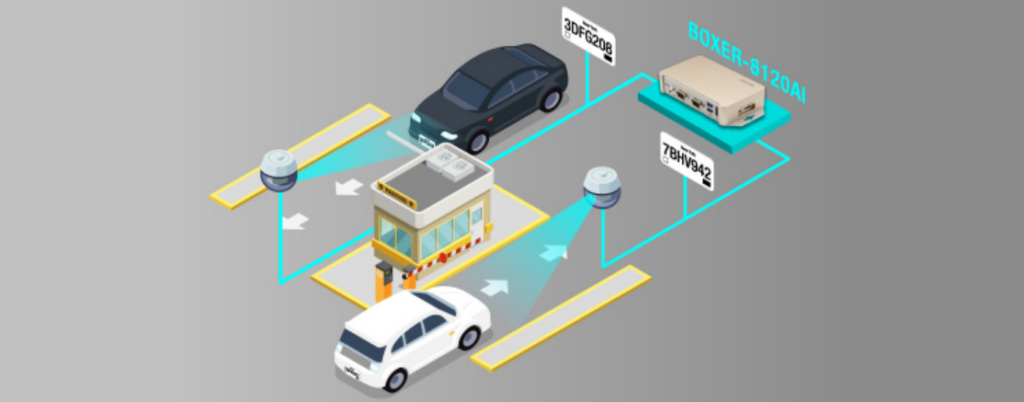Legal & Privacy Concerns of License Plate Readers in Residential Communities

As residential communities increasingly adopt License Plate Recognition (LPR) technology for security purposes, the effectiveness of these systems must be balanced with potential legal and privacy concerns. License Plate Recognition technology automates vehicle identification, enhancing security measures but raising questions about privacy rights and legal compliance.
LPR Technology and the Modern Access Control System
LPR technology is an important component of modern access control systems in gated communities. By automatically capturing and analyzing vehicle license plates, LPR systems can quickly determine whether a vehicle should be allowed entry. This technology streamlines access for residents and authorized visitors while restricting unauthorized access, significantly enhancing security efficiency. Common applications of LPR include monitoring and logging all vehicle entries and exits, which aids in crime prevention and investigative activities. In gated communities, license plate reader systems are integrated into the overall security setup, working alongside surveillance cameras and intercom systems to manage access points effectively.
Legal Framework Surrounding LPR Use
Federal and state regulations govern the deployment of license plate access control systems in residential settings. These laws typically address privacy and data protection concerns, stipulating how and for how long data can be collected and stored. For instance, some states require explicit signage notifying individuals of the presence of LPR technology, while others restrict the sharing of plate data with third parties.
Compliance requirements are critical; residential communities must ensure that their use of LPR technology does not violate privacy laws. This involves secure data handling, limited retention periods, and measures to prevent unauthorized data access. Recent legal cases have highlighted the consequences of non-compliance. For example, several lawsuits have been filed against entities for misusing LPR data or for negligent data handling. These cases serve as a reminder of the legal risks associated with the improper use of LPR technology.
Privacy Concerns with LPR Systems
One of the primary concerns with license plate access control systems is the extensive data they collect, which can include more than just license plate numbers but also times of entry and exit and sometimes even photographs of drivers and passengers. If this data is not handled correctly, it can lead to significant privacy violations. There are risks that the data collected by LPR systems can be misused, such as for personal stalking or unauthorized surveillance. Ensuring that only authorized personnel have access to data on the license plate reader and that usage logs are maintained is crucial for mitigating these risks. LPR systems can make residents feel like they are constantly being monitored, which might be perceived as an invasion of privacy. Clear communication about how the data is used and who has access to it can help alleviate these concerns.
How to Protect Privacy When Using LPR Technology
To address privacy concerns, gated communities can adopt several best practices in data handling, such as implementing license plate reader systems with stringent data security measures (encryption, secure databases) and ensuring data is kept as long as necessary before being securely deleted. Transparency with residents is essential. Communities should communicate the purposes of LPR use, the nature of the data collected, and the measures to protect privacy. Providing residents with opt-in and consent policies offers them a choice about their data, which can help build trust and compliance.
Adopting privacy by design principles means incorporating privacy safeguards into the technology from the outset rather than as an afterthought. Technology solutions like data anonymization and encryption can protect individual identities and reduce the risk of data breaches. Regular audits and assessments ensure that license plate recognition systems comply with ongoing legal requirements and operate within ethical boundaries. These audits can help identify any potential privacy issues before they become problematic.
Conclusion
As License Plate Recognition technology becomes more common in residential communities, the balance between security benefits and privacy protections remains paramount. By understanding the legal facts, addressing privacy concerns proactively, and engaging transparently with residents, community managers can ensure that license plate recognition systems are used responsibly and effectively. Ongoing dialogue and cooperation between community managers, residents, and legal experts are essential to navigate the complexities of LPR use in residential environments.

 Virginia Business Blueprint: How to Kickstart Your Entrepreneurial Journey
Virginia Business Blueprint: How to Kickstart Your Entrepreneurial Journey  The Role of Udyam Registration in Atmanirbhar Bharat Abhiyan
The Role of Udyam Registration in Atmanirbhar Bharat Abhiyan  Mango Costs in Pakistan 2024: A Total Diagram
Mango Costs in Pakistan 2024: A Total Diagram  Why Professional Power Management Can Make or Break Your Event
Why Professional Power Management Can Make or Break Your Event  Experience The Thrill Of Zipline Dubai With Captain Dunes
Experience The Thrill Of Zipline Dubai With Captain Dunes  Exploring London’s Best Butcher Shops
Exploring London’s Best Butcher Shops  Enhance Your Shop Appeal with Sydney’s Best Carpentry Services
Enhance Your Shop Appeal with Sydney’s Best Carpentry Services  A Detailed Look at the Features of the LEGO Technic Mars Crew Exploration Rover
A Detailed Look at the Features of the LEGO Technic Mars Crew Exploration Rover